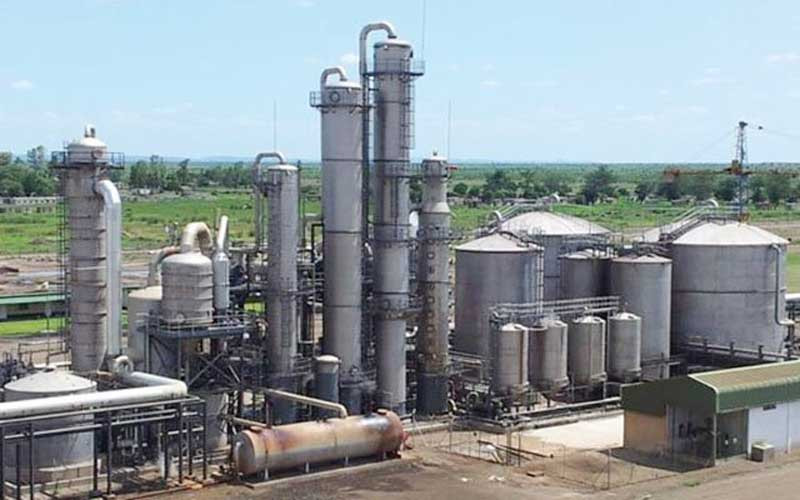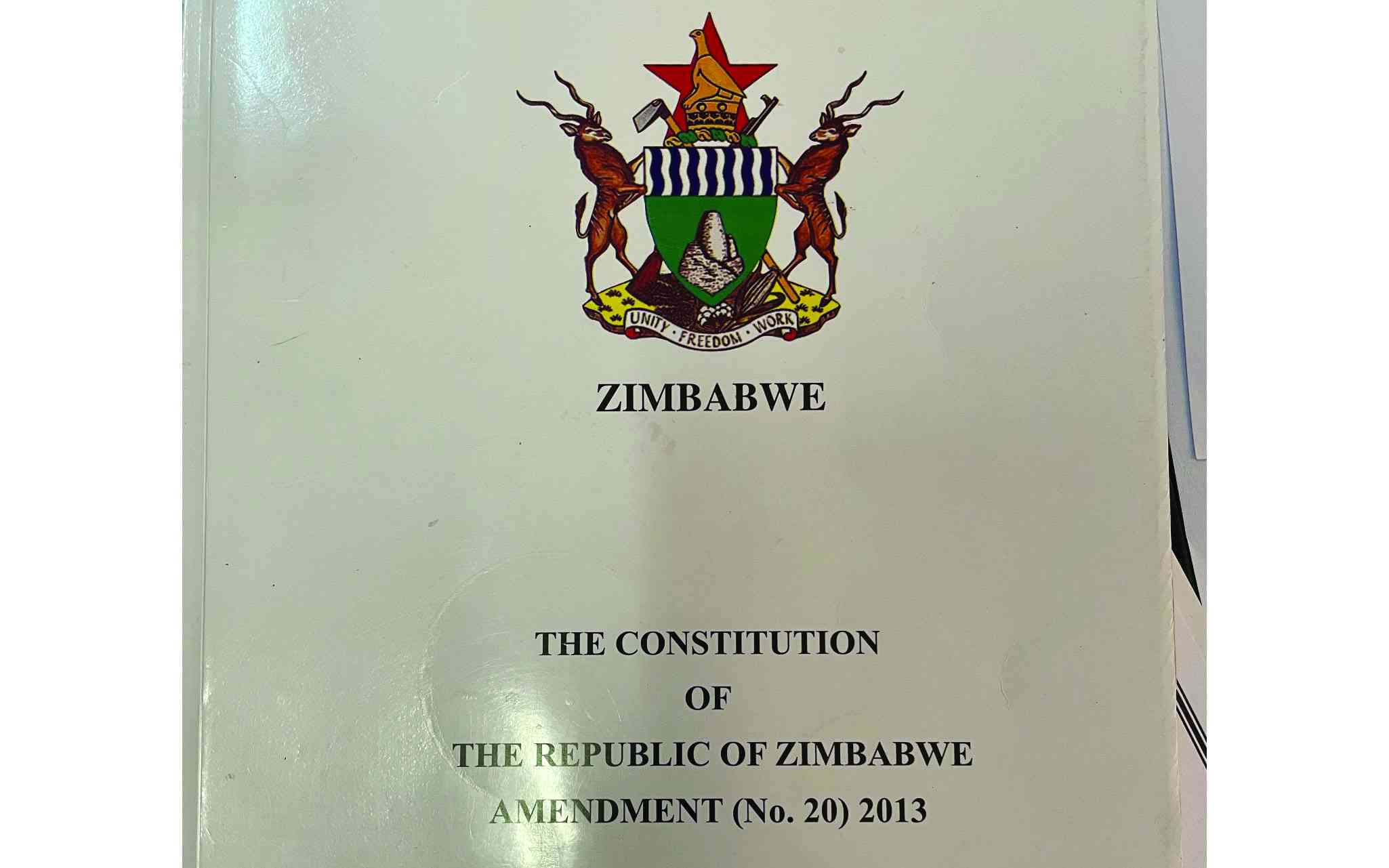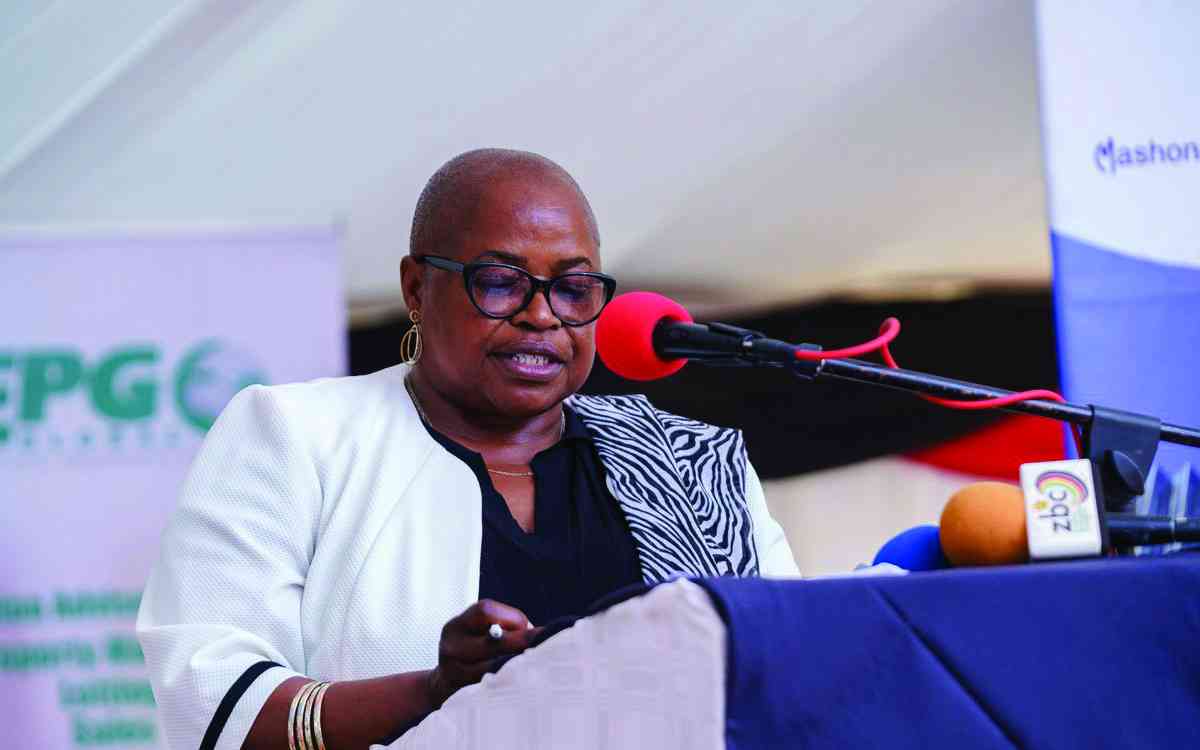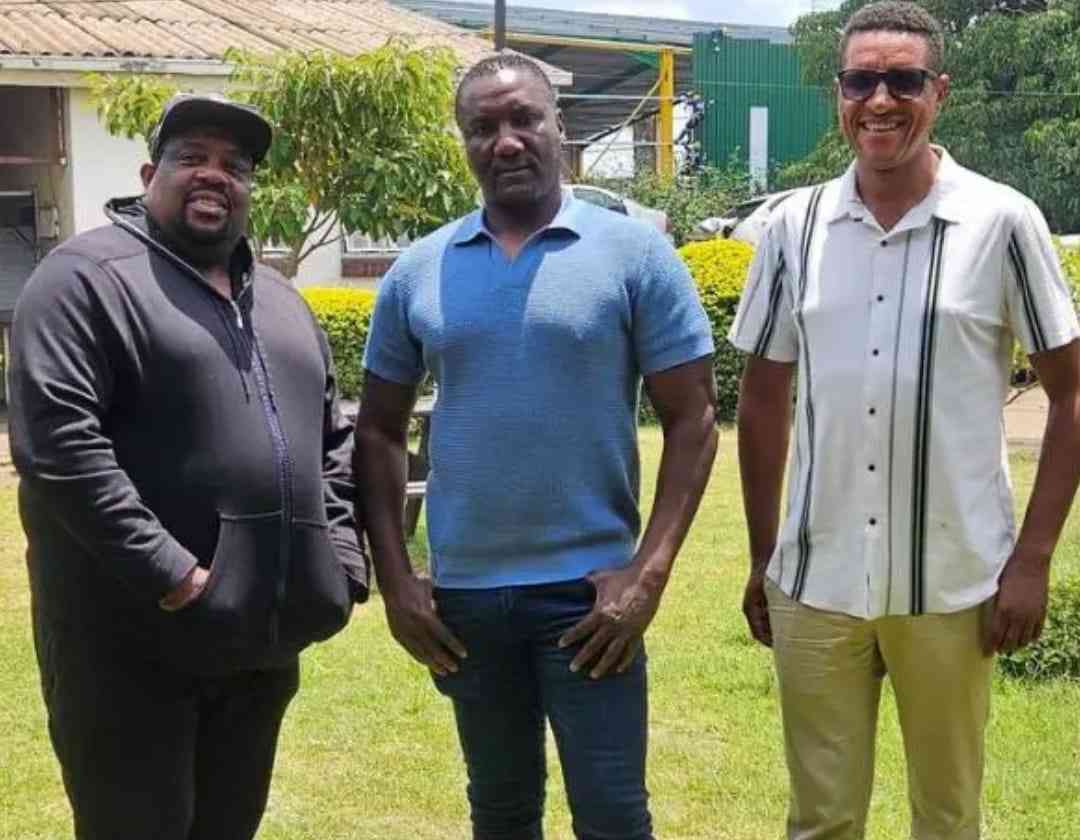
In Chisumbanje, situated on the eastern corner of Zimbabwe near the border with Mozambique, Simeon Forichi is having sleepless nights over the loss of about 10 hectares of land on which he has been growing cotton and other crops.
According to Forichi, a villager in Mukukuzi, ward 30, hundreds of villagers are facing the loss of a total of 4,128 hectares of land to Greenfuel, a company owned by President Emmerson Mnangagwa’s ally, Billy Rautenbach, which is expanding its biofuel project into the disputed land.
Rautenbach also wants the land for a cattle ranching project, with reports that a herd of 1000 cattle is already in Chisumbanje and 3000 more expected after the villagers have been removed.
Forichi and other farmers —numbering over 3000 — are set to get half a hectare each as compensation for the loss of the land.
“When Greenfuel came, they told us the land on which we have been farming belonged to the Agricultural and Rural Development Authority (Arda), but we believe this is not true,” Forichi said.
“We are aware that Arda has already given out all its land to Greenfuel and what they are now claiming to own is communal land, which we are entitled to.
“Despite that, we are concerned that the half a hectare that we are being offered is not sufficient.”
Arda is a government vehicle set up to run farming projects countrywide and has leased part of its land to private entities like Greenfuel.
- Green Fuel fulfills its Chisumbanje pledge
- Green Fuel fulfills its Chisumbanje pledge
- Mr President, you missed the opportunity to be the veritable voice of conscience
- ED to commission new-look border post
Keep Reading
Forichi said Greenfuel never communicated to them on their intention to take away their land.
The villagers only went to enquire from them after they saw the Greefuel equipment preparing the land.
“I was tasked by the villagers to enquire from Greenfuel what was happening since I represent the MP (Clifford Hlatshwayo),” Forichi said.
“I went there and this was when the Green Fuel spokesperson Lillian Muungani told me of their intention.
“She gave me this map showing the land they are taking from us. "She even came here to show us.”
Muungani was not reachable for comment.
The visit to Chisumbanje was sponsored by the Zimbabwe Human Rights NGO Forum to appreciate the level of human rights abuses in the area
Leonard Dube, the village head said it was disturbing that Green fuel wanted to take more land from the villagers “and give each family half a hectare each to till.’
“It is not enough to produce food for domestic use and send children to school,” he said.
He said Manicaland Provincial Affairs minister Misheck Mugadza visited the area in the company of Arda officials, who claimed that the land in Mukukuzi and Machona which Green fuel was taking over belonged to them since 1923.
He claimed that Arda owned 40,000 hectares of land in the area.
“But what was said was that the minister had a meeting, which excluded traditional leaders from this area,” Dube, who is leader of a community land committee, said.
Dube said what was even more disturbing was that Green fuel had not completed compensating those displaced in 2008 when the project was rolled out.
He said lease agreements for land were being done in secrecy between Arda, the council and Green fuel without the knowledge of displaced farmers, in contravention of the Communal l Land Act.
He said parliamentary committees led by former prime minister Authur Mutambara and Justice Mayor Wadyajena (former Zanu PF MP) have observed that the 0.5 hectares given to a farmer was not enough and suggested that they be allocated 2,5 hectares.
Ward 30 councillor Kudakwashe Chikukwa said the land issue has turned political with Zanu PF officials now drawing a list of its supporters from as far as Masvingo as beneficiaries.
“There has been a proposal that those affected be turned into out growers and Zanu PF is already listing its members for benefiting,” Chikukwa said.
“All we want is that real victims benefit from compensation.
“We are also saddened that those from Chinyamukwakwa, who were displaced in 2008 have not fully benefited.
“Others are still to get the 0.5 hectares of land more than 10 years later.”
This publication gathered that there is tension among villagers across the country as the government intensifies evictions of illegal settlers, which have left thousands homeless.
It was established that thousands of citizens across the country are living in anxiety owing to the uncertainty of their fate on the land they occupy.
Police reported that as of February 12, 2024, 3775 people had been arrested for illegal settlement, with 985 having been convicted and fined under the ongoing operation titled No to Land Barons operation
Villagers have so far been evicted in Masvingo, Manicaland, Matabeleland North and Mashonaland East provinces.
According to the police, those arrested“had illegally settled on grazing lands without the authority of the Ministry of Land, Agriculture, Fisheries, Water and Rural Development.”.
But civil society organisations and human rights lawyers have condemned the evictions.
The Masvingo Centre for Research, Advocacy and Development (Macrad) said the majority of the victims got land from village heads and chiefs, “and for over 20 years, they have lived, built their homes, and contributed to their communities.”
“The individuals charged with illegal settlement assert that they had been paying rates as required by local authorities and receiving presidential inputs over the years,” said Macrad.
Ibhetshu Likazulu, a pressure group based in Bulawayo, accused the government of using colonial laws against its people.
According to information gathered by The Standard, the threat of evictions betrays the long-standing need by the government to genuinely solve Zimbabwe’s land question.
The country has grappled with the complex issue of land ownership and accessibility.
The roots of this issue date back to the colonial era when indigenous communities were forcibly displaced from their ancestral lands, resulting in land ownership imbalances.
In response to these historical injustices, Zimbabwe initiated a land reform programme in the early 2000s to redistribute land to the landless majority.
However, the implementation of this programme was marred by irregularities and political manipulation, resulting in adverse consequences.
The politicisation of land further escalated tensions and led to the displacement of rural communities, especially in the context of Chinese mining interests.
While Chinese investment has increased in Zimbabwe's mining sector, concerns have arisen regarding the potential exploitation of natural resources and the adverse implications for local communities.
The eviction of villagers to make way for Chinese miners has perpetuated a cycle of displacement and deprivation, leaving affected communities without alternative livelihood opportunities or adequate compensation.
The situation is made worse by the fact that most rural communities still have full entitlement to their land.
In recent years, Zimbabwe has witnessed a burgeoning urban land and planning crisis that has raised concerns and posed significant challenges for both the government and the residents.
The ruling Zanu PF party's approach of dangling land as a carrot to woo urban voters has given rise to numerous informal settlements, often located on wetlands and riverbanks.
These settlements, lacking essential amenities such as water and sanitation facilities, have become a breeding ground for a host of problems.
One of the most pressing issues is the absence of functioning drainage systems and the haphazard way the settlements have been constructed.
The scattered nature of these settlements makes any attempts to regularise them incredibly difficult.
An absence of proper road infrastructure, water sources, and sewer systems exacerbates the situation, leaving residents with no choice but to resort to makeshift measures.
This includes digging wells and constructing pit latrines wherever they can.
Such improvised solutions not only jeopardise the health and well-being of the residents but also increase the risk of contracting diseases.
The lack of a comprehensive urban land and planning strategy has created a complex dilemma, precipitating challenges that stretch far beyond the immediate concerns of housing and infrastructure.
The Crisis in Zimbabwe Coalition said the continued displacement of people over the past two decades has “caused immense suffering and hardship for affected communities, undermining their human rights, livelihoods, and overall well-being.”
“In some communities, the threat of evictions has remained in place for over ten years, leaving villagers living in anxiety and uncertainty, a situation that discourages farming and other investments,” said the Coalition.
According to the Coalition, current and past evictions have destroyed homes, crops, and essential infrastructure, leaving vulnerable communities in dire circumstances.
“Women, children, the elderly, and people with disabilities are disproportionately affected, exacerbating gender disparities and vulnerabilities within the affected populations,” it added.
“The continued threat of eviction looms large, creating fear and uncertainty among rural communities, perpetuating poverty, and impeding sustainable development efforts.”
The Coalition urged the government to conduct a comprehensive review of the land reform programme to ensure transparency, accountability, and fairness in land allocation.
It also urged the government to consider a “meaningful and inclusive dialogue between the government, affected communities, civil society organisations, and other stakeholders to address land-related grievances, with emphasis on reconciliation, justice, and the protection of human rights through open and constructive engagement.”
Some villagers have engaged lawyers to stop the evictions, but some are threatening to stage protests to compel the authorities to stop the evictions.
Others have sought interventions from community-based organisations who are lobbying to petition the High Court for the juries to stop the evictions.
“The evictees right now are homeless and stranded, henceforth we are in the process of signing a petition, which will be submitted next week to the high court,” Communities in Action Plan programmes manager, Kudzai Walter Mushave, said.
“We are,therefore, calling for every progressive movement in Zimbabwe —we implore Zimbabweans to form a united front as we call for a national shutdown to immediately stop phase two of Murumbatsvina.”
Other victims of the government-sponsored evictions have converged on social media platforms to rally each other into “action” against what they regard as illegal displacements by the government as the majority have lost hope in the courts.
Activists are calling for parliamentary and council representatives to take government head and stop the evictions.
In one of the messages going viral on social media, pro-democracy campaigners want the victims to press their local representatives and demand answers from the government why it is displacing its people.
The message reads: “All evicted families must assemble at their MP or councillor homestead, ask for food and shelter from the MP or councillor.
“Ask your MP to bring parliamentary debate Hansard books to show evicted families what he said about their situation in Parliament.”
The Zimbabwe Lawyers for Human Rights last week temporarily halted the eviction of Masvingo villagers after they appealed against their conviction at the magistrates’ court.
Magistrate Ivy Jawona on Wednesday granted the villagers’ application for a stay of eviction pending the determination of their appeal at Masvingo High Court.
In the appeal, the villagers argued that Magistrate Jawona erred and misdirected herself in convicting and sentencing them to serve jail terms for illegally occupying gazetted land as some of them have been in occupation of their land for more than 40 years.
The villagers want the High Court to overturn their conviction and set aside their sentence and refer their matter to the Constitutional Court for a determination of the constitutionality of their eviction.
They contended that section 3(5) of the Gazetted Land (Consequential Provisions) Act directly infringes their right to freedom from arbitrary eviction guaranteed in section 74 of the constitution.










